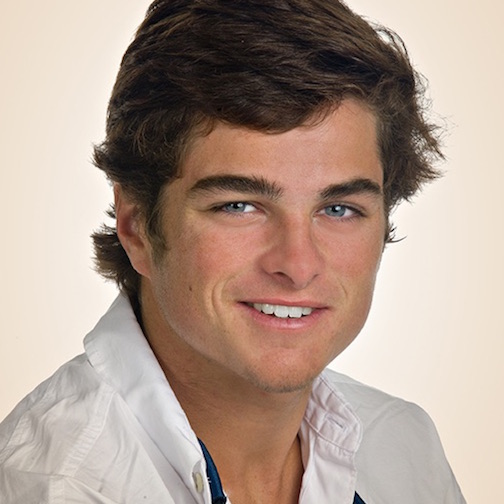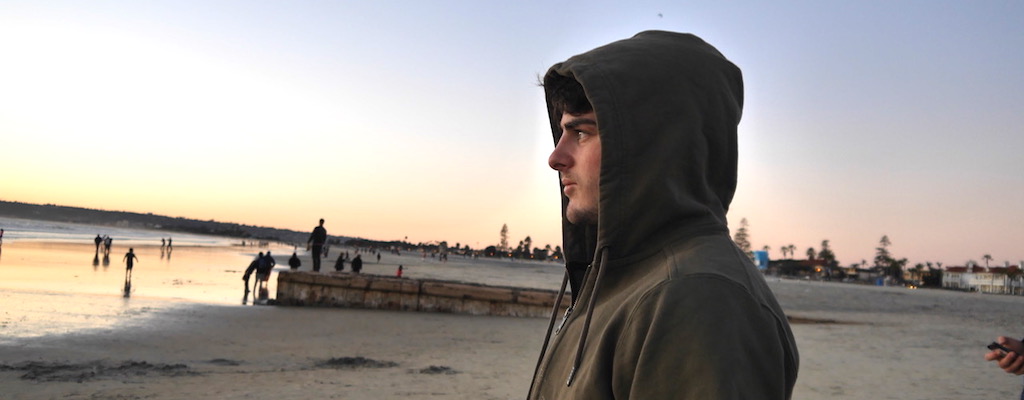Losing Will Hauver
Editor’s Note: For support navigating life after a type 1 death, please visit Jesse Was Here, a unique program made possible by the JDRF – Beyond Type 1 Alliance, providing resources to spouses, siblings, grandparents and friends in need.
 This is a story about an incredible 22-year-old. This young man was on the cusp of creating a life that would help change the world using his kindness, his pragmatism and his creativity. This path to an incredible life ended on February 2, 2015.
This is a story about an incredible 22-year-old. This young man was on the cusp of creating a life that would help change the world using his kindness, his pragmatism and his creativity. This path to an incredible life ended on February 2, 2015.
This is a true story about Will, type 1 diabetes and the flu. Let me start though with Will and type 1 diabetes (T1D). He was an active 15-year-old, just in the start of his high school career, when he was diagnosed with T1D. He was that kid who never stopped moving all day, each day was an adventure.
One day in October he was too sick to go to school—he had blurry vision, he was drinking so much water, feeling nauseous and craving ice cream and milkshakes. I spoke to the doctor, telling him his symptoms, and she gave the usual answer—a virus.
He became increasingly sick all day though. I went out to pick up his younger brother from school, and as I was mindlessly driving, it hit me—Will had all the symptoms of diabetes I just read about in People magazine. (Nick Jonas was diagnosed the previous month.) I came home and read Will the list of symptoms. He confirmed that he was experiencing every single one. I called his pediatrician at home, and after learning he had lost weight, he advised me to take Will to the hospital. He had a blood sugar of around 800. And so our journey into the world of type 1 diabetes began.
Will handled the transition to shots, insulin, finger pricking, snack carrying, carb counting with ease and poise and incredible maturity. We did not restrict the way he lived his life; we added diabetes to it (none of which is routine). He traveled on school trips to ski weekends, lacrosse trips, out of state squash tournaments. He went on week-long church retreats across the country, weekends with friends in their lake cabins, overnights at friends’ houses, anything he wished to do, we made work.
Toward the end of senior year of high school, he did have some major low blood sugar episodes. We switched him from a pediatric endocrinologist to an adult endo, who was also a T1D, also an athlete and also very active. This change taught Will so much about the science of T1D, and helped him understand and manage his diabetes better.
Will chose to attend college in Florida—about 16 hours from our house. Many folks asked us why we would send him so far away when he has T1D. Again, we wanted and encouraged Will to live the life he wanted to live. He had a good handle on the disease, and this was his dream school. He was on the lacrosse team, he found a course of study he loved, and surrounded himself with incredible and supportive friends.
He thrived in college and became an incredible friend to so many. He had a terrific lacrosse experience, even had a little fan club within the local school system. He was named captain of the team his senior year. He was to graduate with honors. His art creations were displayed in local art exhibits. He was the happiest we have ever seen him.
Christmas vacation for Will involved spending more time than usual with his family, bringing his friends over to our house, rather than going to their homes. He spent a lot of time with his younger brother and older sister. He spent time with his dad who was recovering from knee surgery. I was lucky to be able to spend a week with him and his younger brother in Southern California, hiking, biking and sightseeing.
Will was thrilled however to be returning to school in January. He missed his girlfriend and his friends and teammates. He was so excited about the start of his final college lacrosse season. He was preparing for life after graduation.

In late January I had heard from a few of his teammate’s parents that the flu was starting to circulate through the campus. I told Will to stay away from these kids, to get sleep and take vitamins—to take precautions to avoid getting the flu. He texted me Friday telling me not to worry—his friends did not have the flu, just a bad cold. He had a busy weekend of practice, work and getting ready to leave Wednesday for their first weekend of games in North Carolina and Georgia. He was staying in for the Super Bowl to get stuff done.
Monday afternoon I received a call from a Baltimore friend whose son was Will’s roommate. She told me Will collapsed and was in route to the hospital. My husband and I got a flight, threw whatever in a bag and headed to the airport. On that drive to the airport, we called his roommates, his coach, the hospital and no one would get back to us. The hospital had no record of Will being admitted, which meant they were still working on him. We knew.
At the airport, in the waiting area, we got the call from the doctor. He died. His blood sugar was in the 700s. His heart had stopped, they got a faint pulse once, but it was not sustained.
Here is what we figured out after talking to his roommates, his friends, his girlfriend, his trainer on the team. Will was sick on Saturday, but went to practice. He had cold symptoms, a fever and was taking Motrin, and he just chilled at home after practice. Sunday he was feeling better, went to his fraternity meeting to get pledges to come clean his house and decided to stay in that night. He told his trainer and his girlfriend he was feeling much better. He wanted to rest to be at his best for the first game, in just three days. He went to sleep, woke up to start his day, and collapsed. The flu wreaked havoc on his fluids, his blood sugar and then his heart. Official cause of death—diabetic ketoacidosis (DKA).

After Will died, I have worked hard to raise awareness about T1D and raise money to help those who can find a cure and to make this disease be gone. The Egg Crack Challenge raised well over $100,000. The genesis of this challenge was with Will’s idea and his video that he created in the summer of 2014.
Now, today, what I want of each of you reading this is to spread the word, to never forget Will and his story. This is my lesson to teach everyone with type 1, and all the parents and caretakers of persons living with type 1 diabetes.
- Get the flu shot.
- No matter what the circumstance, no matter what the severity, you must go to the hospital, one with endocrinologists on staff, when you have any sign of the flu and the stomach virus. I am not the person to explain the science behind the flu and DKA. I can just implore with you—go to the hospital when you are sick.
Hindsight while grieving is a painful and horrible exercise. However, what I know, is that I should have also reminded Will that if he got the flu, he should get his trainer to take him straight to the hospital. That is on me, and I will regret not reminding him of this forever. His very good A1Cs, his maturity and independence with diabetes management, his success in college, all of this lulled us into complacency. I was on it all through high school and monitored him without too much nagging through college. We had local doctors, his college sports medicine department and all were vigilant about carrying the correct food for him. They had an up to date glucagon pen. We had a cleaning service to keep his college home clean and sanitary. His college wellness center knew of his disease, his roommates were aware and knew where the up-to-date glucagon pen was and how to use it. He had not once been sick with anything, anything, not once, in the seven and a half years since his diagnosis.
But, this is a disease in which we all need to be constantly vigilant. These basic rules of disease management must be followed always—never leave home without supplies, check blood sugar often, never leave home without your choice of food or drink that will treat a low, get the flu shot, have ketone strips available and use them, go to the hospital when you get the flu. It will stay with me forever, that I did not remind Will of this last plan of action. Please let my story not be your story.
The world lost a shining star.
We cannot lose anyone else.
The flu and DKA is a deadly combination—go to the hospital immediately.






